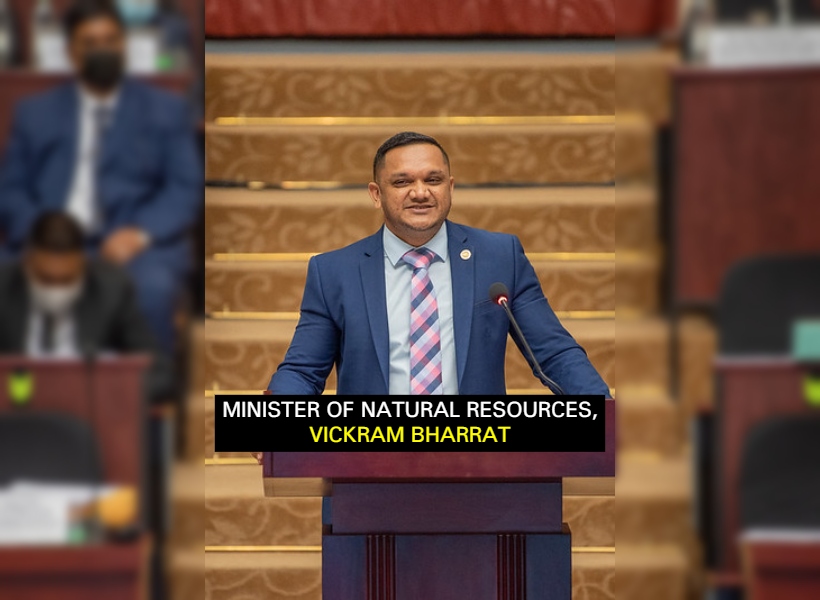With Guyana joining global leaders in the gradual shift from fossil fuels towards renewable energy sources including electric vehicles and solar panels, Minister of Natural Resources, Vickram Bharrat said a complete switch will require boosted output from the country’s mining sector.
During a recent episode of ‘The Guyana Dialogue,’ Minister Bharrat noted that one of the key components that would accompany the switch to renewable energy is the need for an increased supply of minerals and other raw materials necessary for the production of these technologies.
“In order to achieve 100 percent renewable, you have to mine. You need elements. You need minerals. And the conversation has changed a lot from minerals to critical minerals…. Critical minerals are necessary to ensure that we move towards renewable. Because if you have to make batteries, for example, you will need minerals,” he explained.
‘Critical minerals’ refers to metals and non-metals that are essential for a country’s economic future, but whose supply may be uncertain. These include lithium, copper, nickel, cobalt, graphite, and other rare earth elements.
Despite the uncertainty, critical minerals have tremendous potential to develop Guyana’s energy frontier. The government has recognised this, and as a result, exploration activities will be conducted to assess the supply and feasibility of these resources.
“Mining will have to continue. Lithium will probably be the next gold, or will probably be more expensive than gold a few years from now. So, countries that are producing or mining for lithium, are the countries that will make a fortune off of it. Copper, as well, that they use to make batteries, we have found a copper deposit in Guyana.
“We have a company that is going to develop that in a few years from now. And we are welcoming investors to do exploration for lithium and other critical minerals because these minerals are needed for the world to achieve its target of 100 per cent renewable by 2050. So, mining will continue,” Minister Bharrat said.
Since entering office in 2020, the PPP/C Government has taken several steps aimed at securing a more sustainable future for Guyana.
In August 2020, a one-megawatt solar farm was commissioned at Lethem.
Three more solar photovoltaic (PV) farms at Bartica, Mahdia, and Wakenaam are slated for completion in 2023, and another five will be constructed at Leguan, Kwakwani, Port Kaituma, Matthew’s Ridge, and Ituni by mid-2025.
A number of solar PV systems have also been installed in various public locations across the hinterland regions, and in government buildings in Region Four.
Five hydropower projects will also be constructed, while a wind farm with an installed capacity of about 10 megawatts is also being considered for Hope Beach along the East Coast. [DPI]













